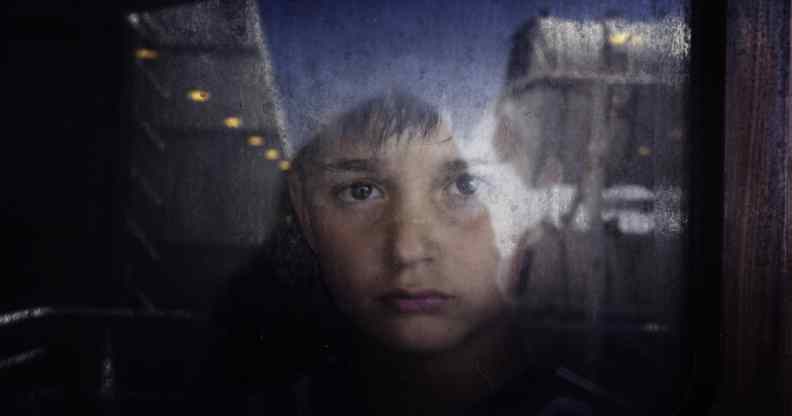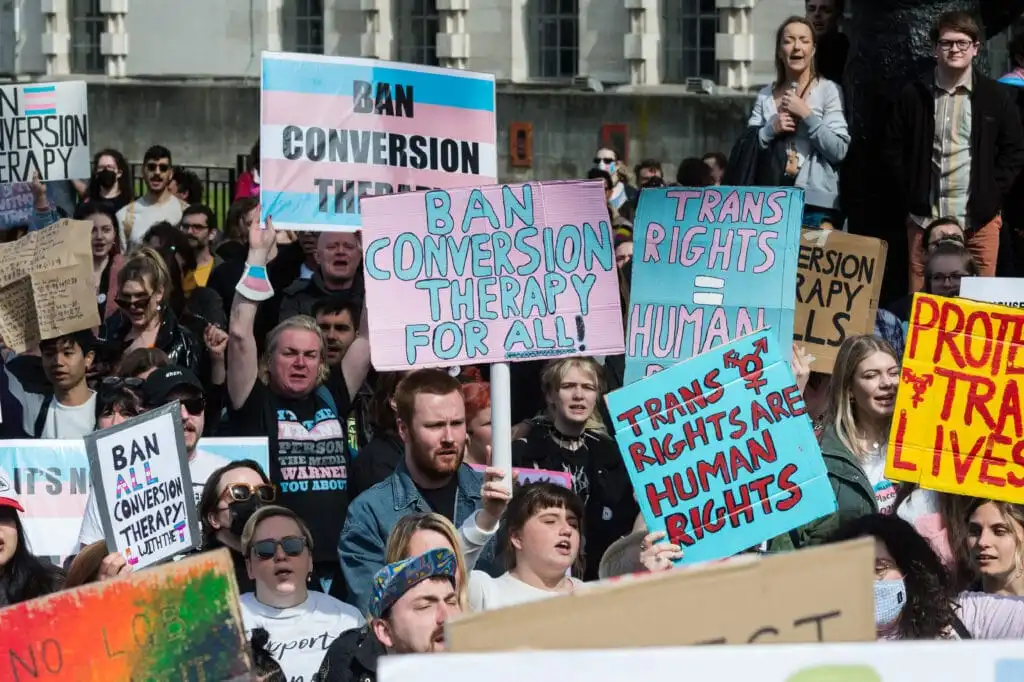Childline sees surge in kids seeking advice about anti-LGBTQ+ bullying, says NSPCC

Young people are increasingly seeking out support from counsellors over anti-LGBTQ= bullying. (Stock photograph via Getty Images)
Young people are increasingly seeking advice about anti-LGBTQ+ bullying, the National Society for the Prevention of Cruelty to Children (NSPCC) says.
The British charity says calls from queer youth stressed about coming out and anti-LGBTQ+ prejudice to its counselling service Childline have actually decreased in the last year.
Childline delivered 4,125 counselling sessions to young people with concerns around gender identity and sexuality between April 2021 and March 2022. This is compared to more than 5,000 the previous year.
But calls concerning anti-LGBTQ+ bullying have skyrocketed. 490 counselling sessions were offered to worried kids compared to 276 the year before – a shocking 78 per cent increase.
Service users described being taunted and tormented for being LGBTQ+ or being perceived as such, the NSPCC said.
“People at school are really horrible, homophobic and constantly making me feel bad about who I am,” said one 14-year-old.
“It’s been like this for a while but I’ve noticed it got worse once we got back from lockdown a few weeks ago.”
Lockdown offered LGBTQ+ youth a brief respite from relentless bullying, says NSPCC
Startlingly, some queer youth said the many lockdowns during the coronavirus pandemic were actually a relief to them. Offering them a brief respite from playground jeers and beatings even though they were cut off from their support networks for months.
“Since restrictions lifted, and young people returned to school, some are struggling being in an environment where people are identifying them as different, which has led to them being bullied and had a huge impact on their mental health,” said Childline service head Alex Gray in a statement.
Gray called out the government for sending out a message that trans people are unworthy of respect, as ministers moved to abandon the community altogether in their conversion therapy ban.
“No child should have to feel worried about how their identity will be received by others, which we feel is important to highlight during Pride Month,” he added.
From whether trans people can take part in sports to whether they can use domestic abuse services, the government has made out that trans people’s rights are up for debate. LGBTQ+ advocacy campaigners have accused the government of using trans people as a ploy to distract voters from their own failings.

LGBTQ+ people demonstrate outside Downing Street in a protest the government’s decision to exclude trans people in a conversion therapy ban. (Wiktor Szymanowicz/Future Publishing via Getty Images)
But the more ministers turn the lives of vulnerable people into a culture war, the more young people will suffer.
“I’m confused about how I want to express my gender. It’s not easy to explain as it’s all quite new to me,” said one 17-year-old who used Childline.
“My mum supports me with the clothing but is ambivalent about other aspects of transitioning. I’m so upset I can’t wear what I want to school as I get nervous about what people will say and think of me.
“I just want to be myself.”
Dominic Arnall, chief executive of LGBT+ young people’s charity Just Like Us, praised the NSPCC for offering young queer folk access to potentially life-saving support.
“We are really saddened to see there’s been such an alarming rise in LGBT+ young people calling about experiencing bullying, although glad to see young people are reaching out for support,” he told PinkNews.
LGBTQ+ pupils are more than twice as likely as their straight peers to be the victims of bullying, and struggle with feelings of loneliness and depression, according to a Just Like Us report. One in five don’t even tell teachers they’re being bullied.
Bullying isn’t going anywhere anytime soon, but Arnall said inclusive education certainly helps. An LGBTQ+ curriculum has been linked to better mental health among pupils.
“Young people need to know that they can be themselves at school and at home,” Arnall said, “and that no one deserves to be bullied.”

